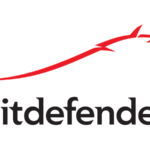Cyber security is the set of techniques, processes and practices used to protect information networks, devices, programmes and data from attack, damage or unauthorised access. Cyber security is also sometimes referred to as ‘information technology security’. Cyber security is the ability of information systems to withstand actions that compromise the confidentiality, integrity, availability and authenticity of the data they process or the related services they offer. It is also a set of issues related to ensuring protection in the area of cyberspace. Cyber-security is related to, inter alia, the protection of information processing areas and interactions in information and communication networks.

For a better understanding of cybersecurity, it is worth mentioning the term cyberspace, which, in accordance with the definition adopted on the basis of emergency laws, is understood as the space for processing and exchanging information created by ICT systems, defined in Article 3.3 of the Act on Informatisation of the Activities of Entities Executing Public Tasks, together with the links between them and relations with users. The conceptual scope of cybersecurity therefore includes issues related to the security of cyberspace, i.e. the processes of information processing and interaction in ICT networks that take place within its area.
Hacker attack – how to protect your website against it?
There are many threats lurking on the internet. After all, you are in danger of being attacked by hackers, which can end really badly for your website. That’s why you need to take care of your website’s security beforehand, and in this way not only will you not lose sensitive data, but you will also protect yourself from having your website taken over.
Although the most talked about problem on the web is SPAM, it is not the only example of hacking activities that you need to protect yourself from. That’s why it’s so important that you know how to secure your website from a hacker attack.

What are the risks associated with a hacker attack?
Usually hacking is carried out by real specialists who know exactly what mistakes Internet users make. They cleverly and often ruthlessly take advantage of these stumbling blocks and then attack. Then several years of your work can be destroyed, all because of a lack of proper protection. In the case of your oversight, you can really be hit hard by a hacker attack. Usually their actions include:

- Taking over a site or swapping it and redirecting it to spammy content.
- Installing viruses on your server – your site will be infected and by visiting other sites, you will attack them. This can lead to criminal prosecution. In addition, Google will see your site as unsafe, which could result in a loss of credibility and customers.
- Sending spam messages from the server – as a consequence of such emails your domain may end up on the spammers’ blacklist.
- Stealing passwords and logins to the CMS system or FTP server.
- Stealing sensitive data – especially large websites are an attractive target for hackers. Such action has its further consequences, because the data is usually sold in the darknet and later used.
- Temporary takeover of a website, which aims to extort money from its owner.
How can we protect ourselves from hacker attacks?
Choosing the right antivirus software will allow you to use your computer/phone without fear of data loss. Choose an antivirus that suits your daily needs.
Antivirus – a computer programme designed to detect, combat, remove and isolate computer viruses. Nowadays, it is usually part of a package of programmes that also protects the computer against many other threats.

Best antivirus programs:
- 1.🥇 Norton — Overall the best antivirus program in 2022.
- 2.🥈 Bitdefender — The most comprehensive internet security suite.
- 3.🥉 Intego — Best antivirus for Mac (macOS only).
- 4. TotalAV — Best because of its ease of use (recommended for beginners).
- 5. McAfee — Best network protection (with a great family plan).







